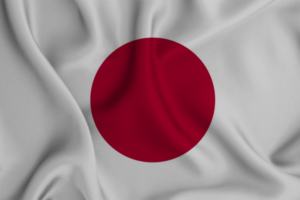Introduction:
Immigration law, a cornerstone of any nation’s legal framework, governs the entry, stay, and exit of foreign nationals. It reflects a country’s geopolitical stance, economic needs, and societal values. Brazil and New Zealand, two countries with distinct cultural and geographical landscapes, have unique approaches to immigration. This article provides a comprehensive comparison of immigration law in these two nations.
1. Historical Context and Evolution:
- Brazil: Brazil’s immigration history is marked by waves of European, Asian, and African immigrants, shaping its diverse cultural mosaic. From the initial colonization by the Portuguese to the modern influx of professionals and refugees, Brazil’s immigration laws have evolved to accommodate its changing socio-economic landscape.
- New Zealand: New Zealand’s Maori heritage, combined with British colonization and its Pacific location, has influenced its immigration patterns. The country has transitioned from a preference for British immigrants to a more diverse and skills-based immigration approach.
2. Visa Categories and Requirements:
- Brazil: Brazil offers a range of visa categories, including tourist, student, work, and investor visas. The requirements vary based on the purpose of stay, duration, and bilateral agreements with the applicant’s home country.
- New Zealand: New Zealand’s visa framework encompasses visitor visas, work visas, study visas, and resident visas. The country’s points-based system for skilled migrants emphasizes age, experience, and qualifications.
3. Residency and Citizenship:
- Brazil: Brazil’s permanent residency can be obtained through family reunification, work, or investment. After four years of permanent residency (or one year if the individual has a Brazilian child), individuals can apply for naturalization.
- New Zealand: New Zealand offers residency through the Skilled Migrant Category, family categories, and business and investment routes. After five years of residency, individuals are eligible for citizenship.
4. Refugee and Asylum Policies:
- Brazil: Brazil is a signatory to the 1951 Refugee Convention and has a comprehensive refugee law. The country offers asylum based on persecution fears, emphasizing human rights and non-discrimination.
- New Zealand: New Zealand’s refugee policy is governed by the 1951 Refugee Convention and the 1967 Protocol. The country has a quota system for refugees and emphasizes family reunification and integration support.
5. Work and Employment Migration:
- Brazil: Brazil’s work visa categories cater to both temporary and long-term employment needs. The country also has specific visas for researchers, professors, and technical professionals.
- New Zealand: New Zealand’s Essential Skills Work Visa and the Long Term Skill Shortage List cater to its labor market needs. The country emphasizes skill matching, ensuring that immigrants fill genuine skill gaps.
6. Family Reunification:
- Brazil: Brazil’s family reunification policies are inclusive, allowing immediate family members of Brazilian residents and citizens to obtain residency. The country emphasizes the importance of family unity in its immigration decisions.
- New Zealand: New Zealand’s family visa categories, including the partnership visa and dependent child visa, prioritize family unity. The country has stringent criteria to ensure genuine relationships.
7. Integration and Support Services:
- Brazil: Brazil offers integration support for refugees and immigrants, including Portuguese language courses and cultural orientation. The country emphasizes social inclusion and community engagement.
- New Zealand: New Zealand provides a range of support services for immigrants, including English language courses, employment support, and community networking opportunities. The country’s focus is on smooth integration and community cohesion.
8. Challenges and Reforms:
- Brazil: Brazil faces challenges related to undocumented immigration, especially from neighboring countries. The country’s recent reforms aim to streamline visa processes and enhance border security.
- New Zealand: New Zealand grapples with balancing its labor market needs with environmental and infrastructural constraints. Recent reforms emphasize high-quality immigration, focusing on skills and economic contributions.
Conclusion:
Immigration law, while rooted in universal principles, is deeply influenced by a country’s unique challenges and priorities. Brazil and New Zealand, with their distinct immigration histories and socio-economic contexts, offer invaluable insights into the complexities of immigration policy. As global migration patterns shift, understanding these nuances becomes essential for policymakers, legal practitioners, and individuals navigating the intricate maze of international immigration.



